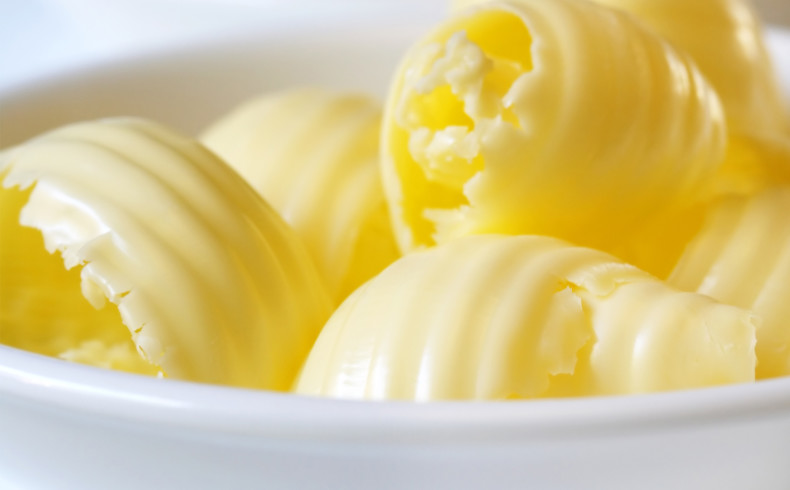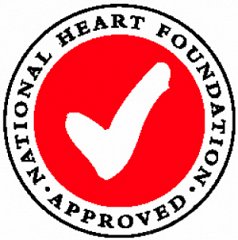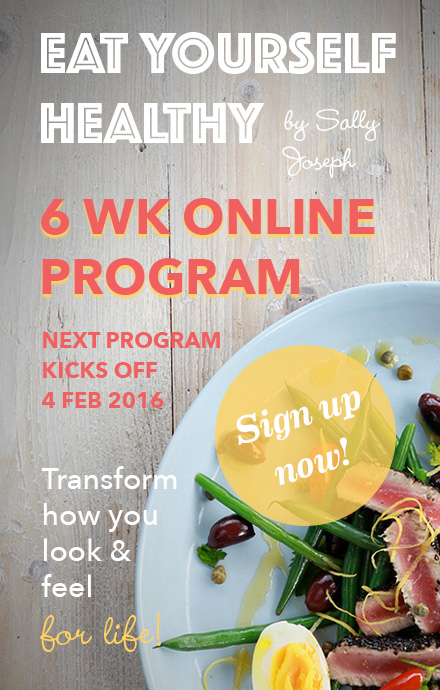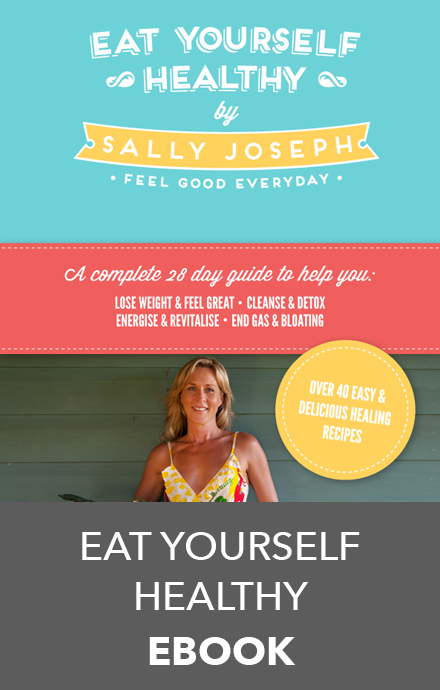
It seems many of us are still falling victim to the clever marketing ploys adopted by manufacturers of margarine. Claims that margarine is ‘good for your heart health’ and will ‘lower your cholesterol’, not to mention the latest Meadow lea advertisement using cute little kids to ‘guilt’ us into using margarine, or we’ll develop heart disease and die, is quite frankly totally misleading and a load of rubbish! I say rubbish, because that’s exactly what margarine is and I’m about to explain why. To make matters worse, the fact margarine is endorsed by the heart foundation, sporting it’s little red tick of approval, is yet another deceptive and misleading form of advertising and quite frankly should NEVER be trusted as a reliable indicator for healthy food.
 = BAD
= BAD
So what is margarine?
Margarine is made from vegetable oils such as canola, sunflower, safflower and soy bean. The process used to turn these vegetable oils from a liquid to semi solid state, to make spreadable margarine, is called ‘hydrogenation’. It’s this process that not only causes the oil to turn a blackish, grey, which they then dye yellow so we consumers will be none the wiser, but it also transforms the oils into trans-fat. Trans fats are the most dangerous fats for us to consume because they increase bad (LDL) cholesterol and decrease good (HDL), cholesterol, increasing triglycerides, lipoprotein, and inflammation. So it’s the trans fats in margarine and so many processed foods, that clog our arteries and cause heart disease – stroke and heart attack, NOT the saturated fats in animal sources and extra virgin coconut oil.
But some margarines have had the trans fats removed because of all the bad press, but this still does not make margarine a healthy source of fat because omega 6, polyunsaturated vegetable oils are some of the most chemically altered foods in our diets, found in the majority of processed food, ranging from salad dressing to mayonnaise, even biscuits and protein powders. To make matters worse, many vegetables oils are extracted from genetically modified crops such as soy and canola, which have been heavily sprayed with dangerous levels of chemical pesticides. You can read more about GM soy in a previous post I wrote here. Add to this scenario the fact we eat meat from animals such as chicken, pork and beef that are usually fed genetically modified, pesticide laden seeds and grains, like soy, making our overall intake of omega-6 rich oils and seeds in our diets way out of proportion, compared to the other essential fatty acid – omega 3.
What is Butter
Butter is totally natural (unless you’re buying the spreadable brands, which I advise against because they contain processed vegetable oils), made from cow’ milk. Now many of you will know that I don’t advocate drinking cows dairy, ( you can read why here) but I make an exception with all natural butter, because it has not undergone the same processing methods that cow’s milk has and because we only need to consume such a small amount of it, the same way we have ’ been eating butter for over 100,000 years.
Many people forget that vital organs, such as the heart, are covered in a layer of saturated fat – known as visceral fat – which is essential for our survival. Its only when our visceral fat levels increase from eating too much sugar, trans fats and processed vegetable oils that we develop lifestyle diseases.
Unlike margarine, butter also contains a portion of omega 3 fatty acids, vitamins A, E K and D, essential trace minerals like selenium – a powerful antioxidant, protective against cancer, along with other healthy fatty acids like butyric, linoleic and lauric acid – which possesses potent antimicrobial and antifungal properties. (these fatty acids are also found in extra virgin coconut oil)
Another reason we were scared off butter stems from the fact it contains the supposed dreaded cholesterol! But science is finally acknowledging that cholesterol is NOT the perpetrator when it comes to heart disease, but rather inflammation is. In fact our body actually needs a certain amount of healthy cholesterol to manufacture essential Vitamin D, as well as for calcium assimilation and cortisol production – the stress response hormone.
Is Saturated Fat bad for us?
In short, no! The demonization of saturated fat began in 1953, when a Dr known as Ancel Keys, published a paper comparing saturated fat intake and heart disease mortality. His reporting skills however left a lot to be desired as he neglected to include key pieces of information which would have proven his theory completely wrong. It is only today, 60 years on, that the truth is finally starting to be revealed. As science has begun to revisit his studies and discover a totally different picture than what he reported.
Obesity only became a health issue along with coronary heart disease when a government health campaign warned us off saturated fats and onto eating supposed ‘healthy’ vegetable oils. Before then we were still sucking the fat from our chops and eating the chicken skin, whilst enjoying the cream off the full fat, unpasteurised milk, but now days we avoid saturated fats as though they are the plague and have replaced them with dangerous processed vegetable oils and sugar. The truth in reality, is processed vegetable oils such as canola, sunflower, corn and soy along with sugar, are the real cause of obesity, cancer and coronary heart disease, NOT unprocessed saturated fats! In 1900 the amount of vegetable based oils that people consumed was basically non existent. Today, people consume, an average, of 31kgs of vegetable oils throughout the year.
So as you can see once again there is a very large commercial vested interest in certain food products, and like soy, vegetable oils made from various seeds are big bucks and that means big marketing campaigns to educate us on the supposed health benefits of these foods. Hopefully this article clears the confusion once and for all around butter vs margarine and if you’re keeping a nasty tub of margarine in your fridge, do yourself a favour and go and hurl it into the garbage bin right now!


Health & Lifestyle Tips
Delicious Healthy Recipes
Educational & Recipe Videos









Hi Stacey, did your husband read my article on butter vs margarine as I explain how the theory came about that saturated fats cause elevated cholesterol – which is untrue – inflammation is the cause of heart disease not cholesterol and processed vegetable oils are the worst fats you can eat. This includes canola and rice bran SPREAD. to turn an oil into a solid it has to under go a process of hydrogenation and THAT is where the problem lies in addition to the fact many seed oils are GMO now days. We have eaten butter for 10,000 years but we have not have epidemic heart disease and obesity that long, only since we switched to low fat and vegetable oils and high sugar. Hope you have some luck convincing him 🙂
Hi Stacey, did your husband read my article on butter vs margarine as I explain how the theory came about that saturated fats cause elevated cholesterol – which is untrue – inflammation is the cause of heart disease not cholesterol and processed vegetable oils are the worst fats you can eat. This includes canola and rice bran SPREAD. to turn an oil into a solid it has to under go a process of hydrogenation and THAT is where the problem lies in addition to the fact many seed oils are GMO now days. We have eaten butter for 10,000 years but we have not have epidemic heart disease and obesity that long, only since we switched to low fat and vegetable oils and high sugar. Hope you have some luck convincing him 🙂
Hi Sally,
Just wondering about the ‘healthy’ margarines like Melrose Omega 3 Spread and Alpha One Rice Bran oil spread? They’re supposedly un-hydrogenised and contain no trans-fats? The Omega one is made from Canola oil though (as well as flaxseed oil)….
It’s very confusing! Especially when products are purported as healthy, in health food stores! I personally don’t eat the stuff but my husband does. I keep telling him he’d be better off having real butter, but he believes it will cause/raise cholesterol!
Hi Sally,
Just wondering about the ‘healthy’ margarines like Melrose Omega 3 Spread and Alpha One Rice Bran oil spread? They’re supposedly un-hydrogenised and contain no trans-fats? The Omega one is made from Canola oil though (as well as flaxseed oil)….
It’s very confusing! Especially when products are purported as healthy, in health food stores! I personally don’t eat the stuff but my husband does. I keep telling him he’d be better off having real butter, but he believes it will cause/raise cholesterol!
I used to get weasy & I cut out dairy & wheat – which helped but the thing that made the biggest difference was cutting out anything that contained food colourings or preservatives (the 220’s etc (sulphur group preservatives) as they are in nearly everything that is processed or manufactured. We need to go back to the theory, that if your grandmother doesn’t recognise it then don’t eat it.
Nick
I used to get weasy & I cut out dairy & wheat – which helped but the thing that made the biggest difference was cutting out anything that contained food colourings or preservatives (the 220’s etc (sulphur group preservatives) as they are in nearly everything that is processed or manufactured. We need to go back to the theory, that if your grandmother doesn’t recognise it then don’t eat it.
Nick
Hi Toni try using extra virgin coconut oil, and plain coconut yoghurt in place of all cow’s dairy for a period to assess the difference this makes with your daughters asthma, but I also recommend removing gluten and sugar as well, when you can, as these are also highly inflammatory foods when it comes to conditions such as asthma . Let me know how you go x
Hi Toni try using extra virgin coconut oil, and plain coconut yoghurt in place of all cow’s dairy for a period to assess the difference this makes with your daughters asthma, but I also recommend removing gluten and sugar as well, when you can, as these are also highly inflammatory foods when it comes to conditions such as asthma . Let me know how you go x
You’re definitely preaching to the converted about butter with me! I am it’s number one fan. I am negotiating with my nearly 15 yr old daughter to try ditching the dairy for a month to get her asthma/hayfever under control. Would it be best to steer clear of butter in this instance too? Many thanks Sally, I love your blog! Toni
You’re definitely preaching to the converted about butter with me! I am it’s number one fan. I am negotiating with my nearly 15 yr old daughter to try ditching the dairy for a month to get her asthma/hayfever under control. Would it be best to steer clear of butter in this instance too? Many thanks Sally, I love your blog! Toni